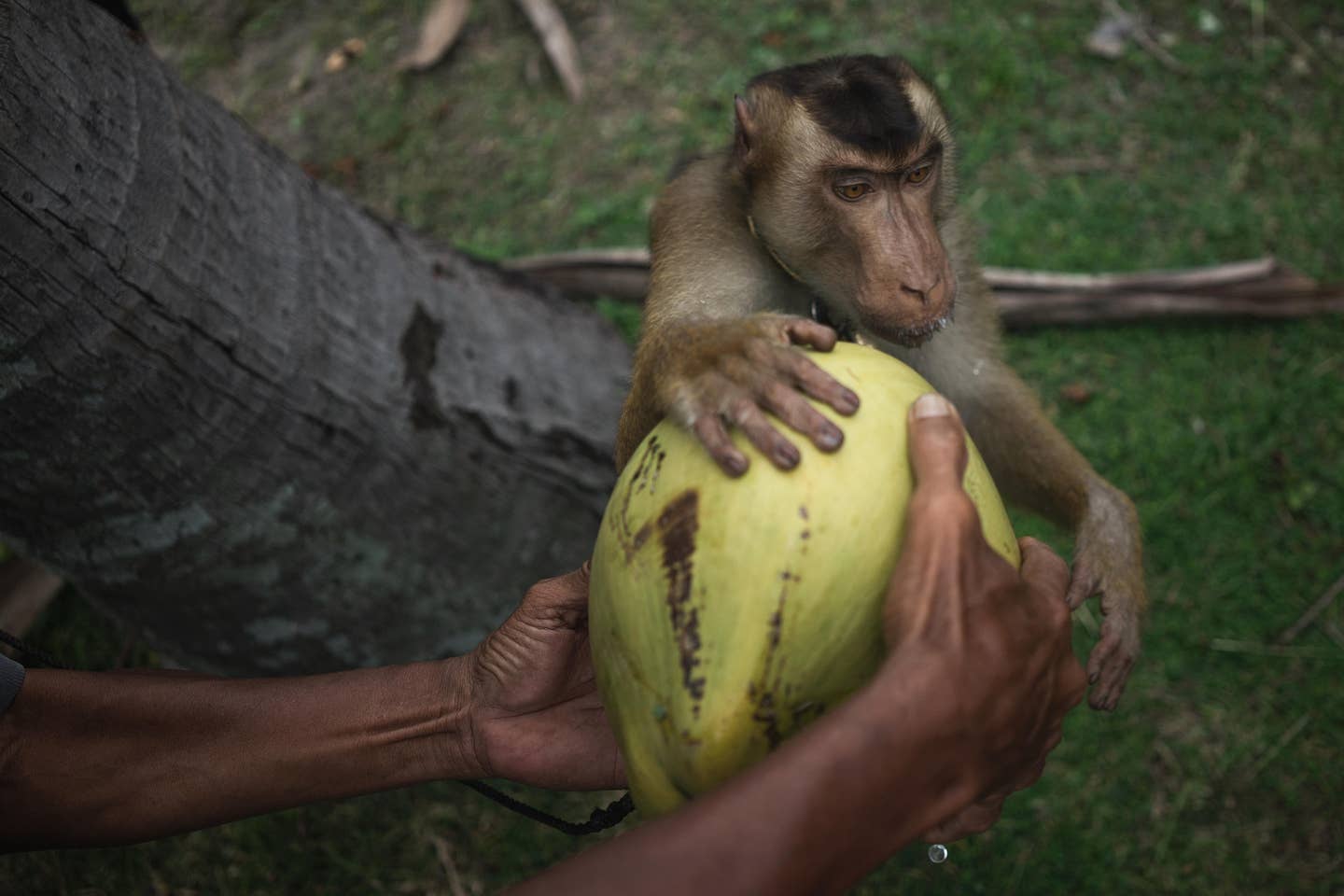
Coconut Products Tied to Animal Cruelty Leads to 15,000 Stores Ban
Visit the grocery store and you're guaranteed to find many different brands of coconut products like coconut milks, yogurts and waters. What you may not be guaranteed is that these products, while vegan, are not harming animals. PETA Asia recently exposed two brands for using cruel monkey labor to pick coconuts in Thailand: On your next grocery trip, make sure to avoid Aroy-D and Chaokoh coconut products.
You might have seen these brands in major stores like Stop and Shop, Walgreens and Duane Reade as well as Cost Plus World Market, and Giant Food, After PETA broke this news, these stores assured customers that they will no longer stock any Aroy-D and Chaokoh coconut products on their shelves.
Stores Ban Monkey Labor Coconut Products
A total of 15,000 stores have banned the brands permanently, including 9,277 Walgreens and 250 Duane Reade stores in the United States as well as 276 Cost Plus World Market stores worldwide. Dutch retailer Ahold Delhaize has pledged to prohibit any brand that uses monkey labor in its stores, which include Giant Food, Food Lion, Stop & Shop, and Hannaford.
PETA visited eight coconut farms in Thailand and found chained monkeys that were forced to pick coconuts while chained up and poorly treated. Companies use animal labor because monkeys can pick the fruit much faster than humans, thus helping to speed up production. Known as "social animals," these monkeys aren't allowed to mingle amongst themselves and instead are coerced into picking coconuts all day long and forced into cages after their work is done.
The PETA investigation has shed light on how coconut products are made in Thailand, which has caused major stores to rethink buying practices of coconut products harvested in Thailand. "The majority [of the stores mentioned above] are no longer buying any coconut products sourced from Thailand monkey labor," says PETA in a story in the organization's website
The video below shows you an in-depth look at the conditions of monkeys. Note: It is a hard video to watch so don't press play unless you are prepared to be upset by these conditions.
The Los Angeles Times reported this week that the government of Thailand denies that any harm or abuse is done to the monkeys while they are forced to work picking coconuts.
Thailand isn't the only country where coconuts are grown and harvested for milk and water, etc. Coconuts are also widely grown and harvested in Brazil, Colombia and Hawaii. According to PETA, the best methods for brands to use in harvesting coconuts are "tractor-mounted hydraulic elevators, willing human tree-climbers, rope or platform systems, or ladders." Or, PETA adds, companies can choose to plant dwarf coconut trees instead of employing the cruel animal labor practices used by the brands Aroy-D and Chaokoh.
Some of our favorite coconut brands that are cruelty-free and vegan include: Daiya,
Califia Farms, Harmless Harvest, So Delicious, Silk, Trader Joe’s, and Vita Coco.
More From The Beet






